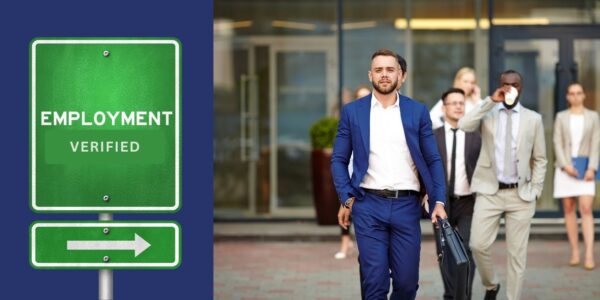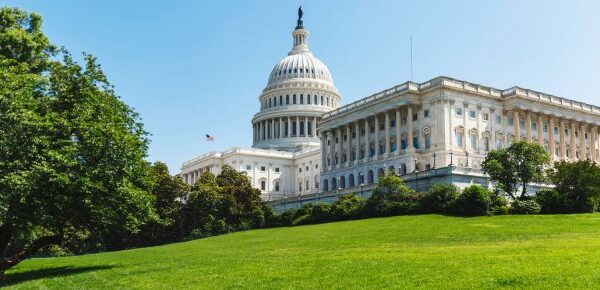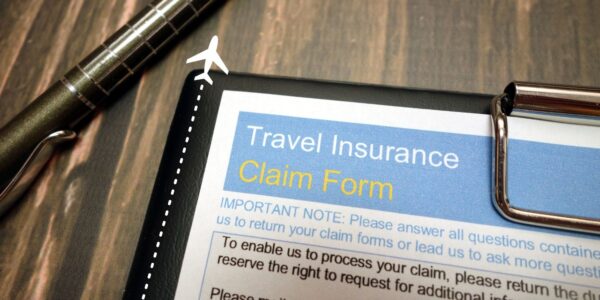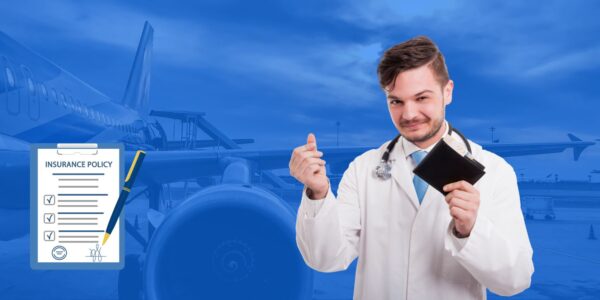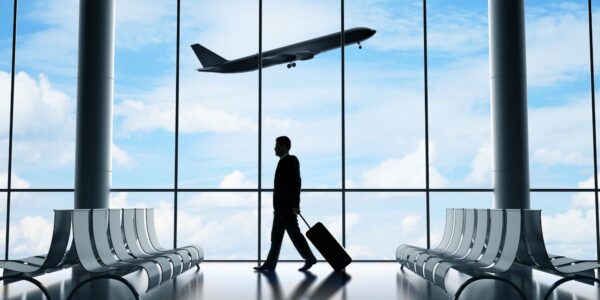Guide to US Visa Interview Questions
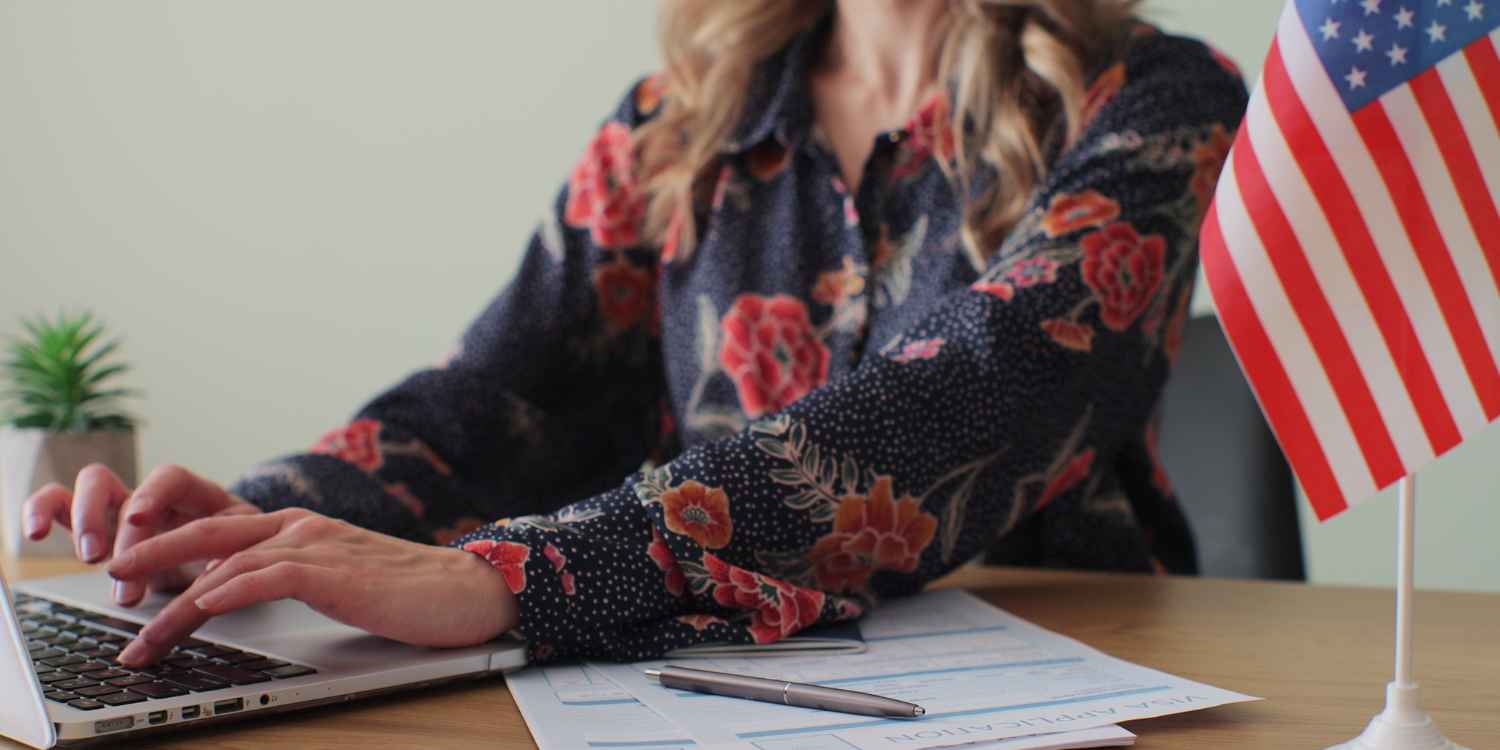
If you are visiting the U.S. for work, studies, business, tourism, medical treatment, and other reasons, you need to obtain a US Visa.
The US visa interview can be a daunting and nerve-wracking experience for anyone seeking to visit or immigrate to the U.S. However, with the right preparation, you can increase your chances of being approved for a visa.
To help you prepare for this crucial step, this blog will guide you on common US visa interview questions, tips for answering them effectively, and suggestions on how to prepare yourself.
Before we get into the blog, let us get acquainted with the process for applying for a US Visa.
Applying for the B1-B2 Visa category? Read out Complete Guide to the B1/B2 Visa
Steps Involved in the US Visa Application Process:
As a visa applicant, you will need to establish that you meet all requirements to receive the visa category for which you are applying.
- Find out what type of visa you need to apply for. The type of visa required under U.S. immigration law will depend on the reason for your travel as well as other details.
- Fill out the online DS-160 application form, which requires personal and travel information, employment history, and a photo.
- Pay the visa application fee, depending on the type of visa.
- Schedule a visa interview at the US embassy or consular office in your home country.
- Collect and organize the required documents, such as a passport, photograph, financial records, academic transcripts, and letters of invitation or employment.
- Attend the planned interview for a visa, during which you will be asked about your travel plans, the reason for your visit, and ties to your home country.
- Processing of your application can take a few days to a few weeks or even months, depending on the visa type and the applicant’s nationality.
- If your application gets approved, the embassy or consular office will send your passport with the visa stamp through a courier service.
What is the Visa Interview Process?
You must appear at the U.S. Embassy or Consulate or appointment center on the day and time of your scheduled appointment with a printed copy of your confirmation page for the DS-160 visa application.
A consular officer will interview you (as well as any accompanying family members or beneficiaries) to determine your eligibility for a visa.
Digital fingerprint scans will be done as part of the interview process.
The visa officer will interview you and verify the documents you provided, as well as inquire about your travel history, the reason for your trip, your employment status, your financial situation, and your personal background.
The questions may vary based on the type of visa you applied for.
By understanding what to expect during the interview and how to present yourself to the officer, you can increase your chance of a visa being granted.
Note: Before the interview, ensure you have followed the U.S. Embassy or Consulate interview preparation instructions. At the interview, the visa officer will scan your response to assess if you are giving an honest answer to the question being asked. Preparation will help you to avoid being nervous and give an honest answer to each question.
Documents Required for US Visa Interview
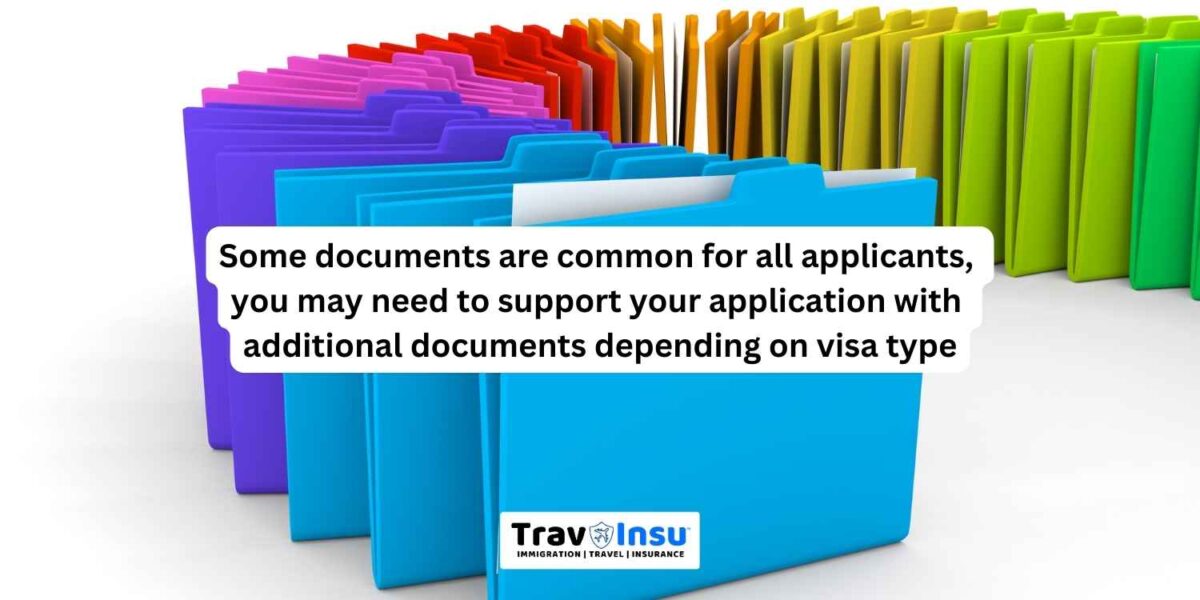
The specific documents required for visa interviews will differ depending on the type of visa being applied for and the applicant’s circumstances.
However, the following documents are commonly needed:
- Passport: A valid passport is required for all US visa applications. It must be valid for at least six months beyond the intended period of stay in the U.S
- Visa application confirmation page: The confirmation page of the application form (DS-160) must be presented at the interview.
- Photographs: Two identical passport-sized color photographs must be provided.
- Visa fee payment receipt: The application fee must be paid before the interview and a receipt provided.
- Appointment confirmation: The appointment confirmation letter or email must be presented at the interview.
- Supporting documents: This may vary depending on the visa type but could include:
- Proof of financial support, such as bank statements, tax returns, or employment letters
- Travel itinerary, including flight and hotel reservations
- Proof of strong ties to the applicant’s home country, such as family, employment, or property ownership
- Educational records, such as transcripts or diplomas
- Criminal records, if applicable
Review carefully the specific requirements for the visa type being applied for and bring all necessary documents to the interview. Failure to provide the required documentation could result in a delay or rejection of the application.
An Overview of the Most Common Types of US Visas
There are several types of visas that you can apply for to visit the U.S., each with its specific eligibility requirements and application process.
A list of the most common types of US Visas is given below:
As you may already know, US visas are grouped into two main categories: non-immigrant visas (for a temporary stay) and immigrant visas (for permanent residence).
Popular Non-immigrant Visas:
B-1/B-2 Visa: For individuals visiting the US for business or pleasure. It allows for a temporary stay in the US for up to six months.
F-1 Visa: For individuals who wish to study in the US at accredited institutions/ US universities.
J-1 Visa: For individuals participating in an exchange program, such as educational, cultural, or research exchange programs.
H-1B Visa: For individuals who work in specialty occupations that require specialized knowledge or skills. This visa is often used by technology companies to hire foreign workers.
L-1 Visa: For intracompany transferees who work for a company outside of the US and are being transferred to work for the same company in the US.
E-2 Visa: For individuals who wish to invest in and manage a business in the US.
Popular Immigrant Visas:
Diversity Visa: This visa allows individuals from countries with historically low levels of immigration to the US to apply for permanent residency through a lottery system.
Family-Based Immigration Visas: These are immigrant visas for spouses, children, parents, or siblings of US citizens or lawful permanent residents who wish to join their family members in the US.
Employment-Based Immigration Visas: For individuals who have been offered a permanent job in the US by a US employer.
Note: Each type of visa has its eligibility criteria, the application process, and the required documentation. It is essential to carefully review the requirements for each visa type and to seek professional guidance, if necessary, to ensure a successful application process.
Read our blog for detailed information on US visa types.
Key Differences In Visa Interview Questions Between Visa Types
Nonimmigrant Visa Interviews: Interviews for nonimmigrant visas are often shorter than those for immigrant visas and concentrate on the applicant’s intended purpose of travel, ties to their home country, and general admissibility to the U.S.
Immigrant Visa Interviews: Topics covered include the applicant’s employment history and personal background, financial condition, familial relationships, and ties to their home country.
Student Visa Interviews: A student visa interview may be longer and more in-depth than other nonimmigrant visa interviews, with a focus on the applicant’s academic history, intended course of study in the US, and long-term career goals.
Business Visa Interviews: Business visa interviews may center on the applicant’s business background, the type of proposed business operations in the US, and the viability of the company financially.
Family-Based Immigration Visa Interviews: In family-based immigration visa interviews, the applicant’s relations with their family, the financial position of their sponsor, and their plans for residing in the US may be discussed.
Are your parents visiting the US? Read health insurance options for parents visiting the US.
Employment-Based Immigration Visa Interviews: Interviews for immigration visas based on employment may be centered on the applicant’s job abilities, qualifications, and the employer’s financial status.
Commonly Asked Questions On US Visitor Visa Interview
As we’ve discussed, the visa interview questions asked will vary depending on the type of visa being applied for, but there are some commonly asked questions that applicants can expect to be asked.
Here are some sample questions asked during the US visitor visa interview:
- What is the purpose of your trip to the United States?
- Have you been to the U.S. before? If so, when and for how long?
- What is your occupation?
- What is your income?
- Do you have family members or relatives in the U.S.?
- What ties do you have to your home country?
- How long do you plan to stay in the U.S.?
- Where you will be staying in the U.S.?
- What are your travel plans while you are in the U.S.?
- How will you support yourself financially while you are in the U.S.?
- Who is going to sponsor your US trip?
- Have you booked your return tickets?
- Have you ever been refused a visa to any country, including the U.S.?
- What are your plans after the visa expires?
Note: Answer honestly and confidently and provide any requested documentation to support your answers. Be ready to provide documents as asked by the consular office.
Tips For A Successful Visa Interview
The interview process is an opportunity for the consular officer to assess the applicant’s eligibility for a visa and to ensure that you meet all the requirements.
The tips below with help you prepare for your interview at the U.S. Embassy or U.S. Consulate in your home country:
Show Ties To Your Home Country
One of the primary goals of the visa officer is to make sure that the applicant is not intending to immigrate or stay in the US beyond the authorized period of their visa.
Demonstrate strong ties to your home country, such as family, property ownership, and employment, to show that you have a strong incentive to return home after your visit to the United States.
Practice Your English
If you opt for an English language interview it’s important to be comfortable speaking in the language. Practice with friends or family members and try to improve your English skills before the interview. Alternatively, select the native language option if available.
Keep Your Answers Concise
Avoid giving long-winded responses. Answer questions directly and to the point. Consular officers are facing significant time constraints to conduct interviews quickly and efficiently due to the large number of applications they receive. Their decision will be based on the initial impression formed within the first couple of minutes of the interview.
Be Prepared
Make sure you have all the necessary documents and information before the interview. This includes your passport, visa application form, supporting documents, and any other relevant paperwork. Familiarize yourself with the process and the requirements for your visa category.
Stay Calm And Confident
The interview can be stressful but try to remain calm and confident throughout the process. Speak clearly and answer questions confidently, but don’t be arrogant or defensive. Remember, the interviewer is trying to determine if you are a genuine visitor and if you will return to your home country after your visit.
Be Honest
Give honest answers to all questions to the best of your ability. Do not provide false information or hide anything from the interviewer. Consular officers are trained to identify inconsistencies and lies, and dishonesty could lead to the rejection of your application.
Dress Appropriately
Dress appropriately for the interview. The goal is to present yourself as a serious applicant who is taking the process seriously.
Be On Time
Arrive early to the interview to allow time for security checks and to find the interview location. Being late could result in your interview being canceled or rescheduled. Plan your travel to the interview location, including transportation and accommodation if necessary.
Practice Answering Common Interview Questions
Review the common interview questions and practice answering them with a friend or family member. This will help you feel more comfortable and confident during the actual interview.
To have a successful interview, you should aim to demonstrate that you are eligible for the visa. This can be achieved by adequately preparing for the interview, being courteous and honest, and leaving a positive impression on the consular officer.
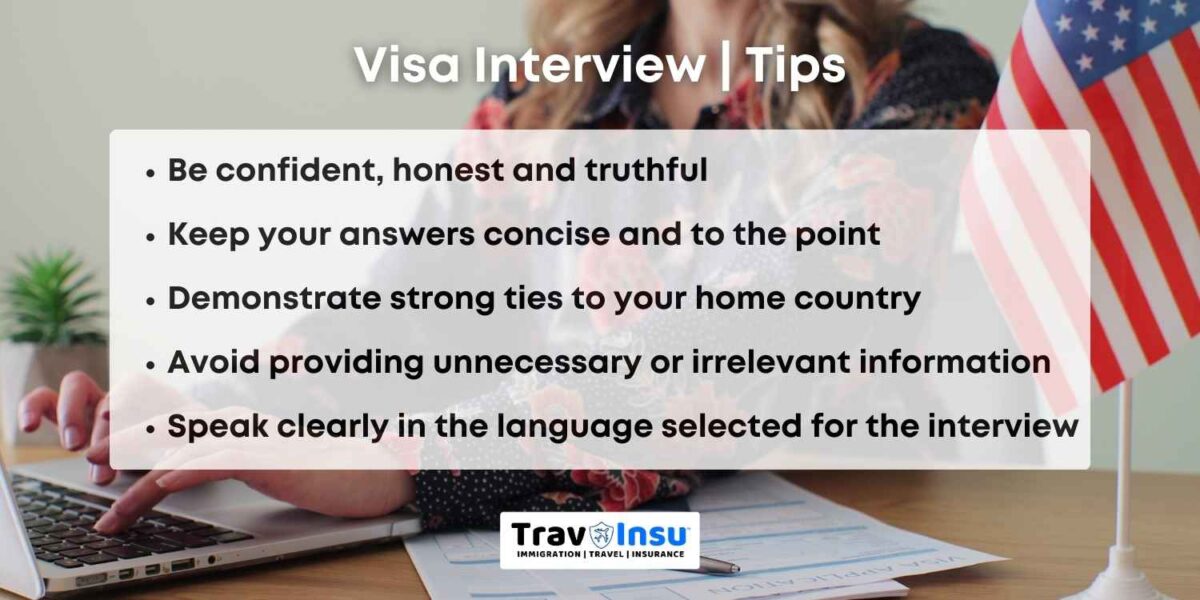
Things to Avoid During the Visa Interview
Here are some things to avoid during the interview:
- Do not give false information to the consular/ visa officer.
- Lying or providing false information in your application or to the officer is a serious offense and can result in your application being denied.
- Avoid arguing or becoming defensive if you are asked difficult questions. Instead, answer the questions calmly and respectfully.
- Do not go unprepared. Failing to prepare for the interview can create a negative impression on the consular officer.
- Do not bring prohibited items. Check with the consulate or embassy beforehand to ensure that you are not bringing any prohibited items.
- Provide relevant information that directly answers the questions being asked, but avoid providing too much unnecessary information. Similarly, avoid giving short, one-word answers.
- Avoid giving the impression that you have no reason to return after your planned visit to the USA.
- Avoid being disrespectful or rude to the consular officer or other staff members at the consulate or embassy.
Importance of Preparing for a US Visa Interview
Benjamin Franklin once said, “By failing to prepare, you are preparing to fail.”
There are many reasons why you should prepare for a US visa interview. Here are some important ones:
- Increase Chances of Approval
- Avoid Delays or Rejection
- Confidence, Composure & less stress
- Saves Time and Money
- Improves Communication
Frequently Asked Questions
What is the visa interview, and why is it required?
The US visa interview is an in-person interview conducted by a consular officer at a US embassy or consulate. It is required to assess an applicant’s eligibility for a US visa and to ensure that they do not pose a security or immigration risk.
How far in advance should I schedule the interview?
You should schedule the interview as soon as possible after receiving notification that your application has been approved. Processing times can vary depending on the visa type and time of year, so it is best to schedule the interview well in advance of the intended travel date.
How long does a visa interview take?
The duration of a visa interview can vary depending on the type of visa, the complexity of the case, and the number of applicants being interviewed at the same time. In general, most visa interviews last for about 5-10 minutes, but some interviews may take longer.
How do I know if my visa is approved?
At the end of your interview, the consular/ visa officer will inform you if your application has been approved or denied. If approved, the officer will typically return your passport with the visa stamp affixed to it within a few business days. Alternatively, you can track the status of your application online using the CEAC (Consular Electronic Application Center) website, which will show if your visa has been issued or if additional processing is required.
How do I download my visa interview appointment letter?
Visit the official website of the US embassy or consulate where your visa appointment is scheduled. Log in to your account to check the specifics of your appointment and to download the PDF of your interview appointment letter. To serve as proof of your appointment, bring a printed copy of your appointment letter to your visa interview.
You can ask for help from the embassy or consulate’s customer service department if you experience any problems downloading your appointment letter.
What should I do if my visa is denied?
The visa officer will give an explanation if the visa is denied. You can ask the consular officer for their feedback and then take the steps needed to resolve any issues. In specific circumstances, you can also appeal the decision.
Can I work on a visitor visa?
No. You can not work on a visitor visa. B-1/B-2 US visitor visa holders are not allowed to work or engage in any business activities that generate income in the US.
What documents do I need to bring to the student visa interview?
For a student visa interview, you will need to bring your passport, Form DS-160 confirmation page, acceptance letter from the US university, proof of financial support, and any other relevant documents, such as academic transcripts.
Can an international student work on a student visa?
An international student in the US attending a University Course on an F-1 visa can work on-campus at the University for up to 20 hours per week during the academic year and full-time during school breaks. Off-campus employment outside the University is also possible in some cases with the approval of the university and the US Citizenship and Immigration Services (USCIS).
What happens if my visa expires?
If your visa validity expires before you enter the U.S., you will need to apply for a new visa. The expiration date on your visa is the last day that you can use it to enter the country. If you have already entered the United States on your visa and it has expired, your visa status will not be affected as long as your I-94 arrival/departure record is still valid.
However, if you leave the U.S. with an expired visa, you will need to apply for a new visa before you can return to the United States. Keep track of the expiration date on your visa and apply for a new visa well in advance of your planned travel dates to avoid any issues.
Conclusion
In conclusion, obtaining a US visa can be a complex and challenging process, but with adequate preparation and a positive attitude, it is possible to succeed.
By understanding the different types of visas and the interview process, gathering all the necessary documents, and practicing your answers to common interview questions, you can make a positive impression on the consular officer and demonstrate your eligibility for a visa.
Remember to be honest, respectful, and confident during the interview and to follow all the guidelines and instructions provided by the embassy or consulate.
With the right preparation and mindset, you can navigate the US visa interview process with ease and achieve your goal of visiting the United States.
